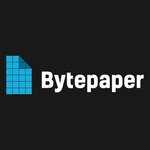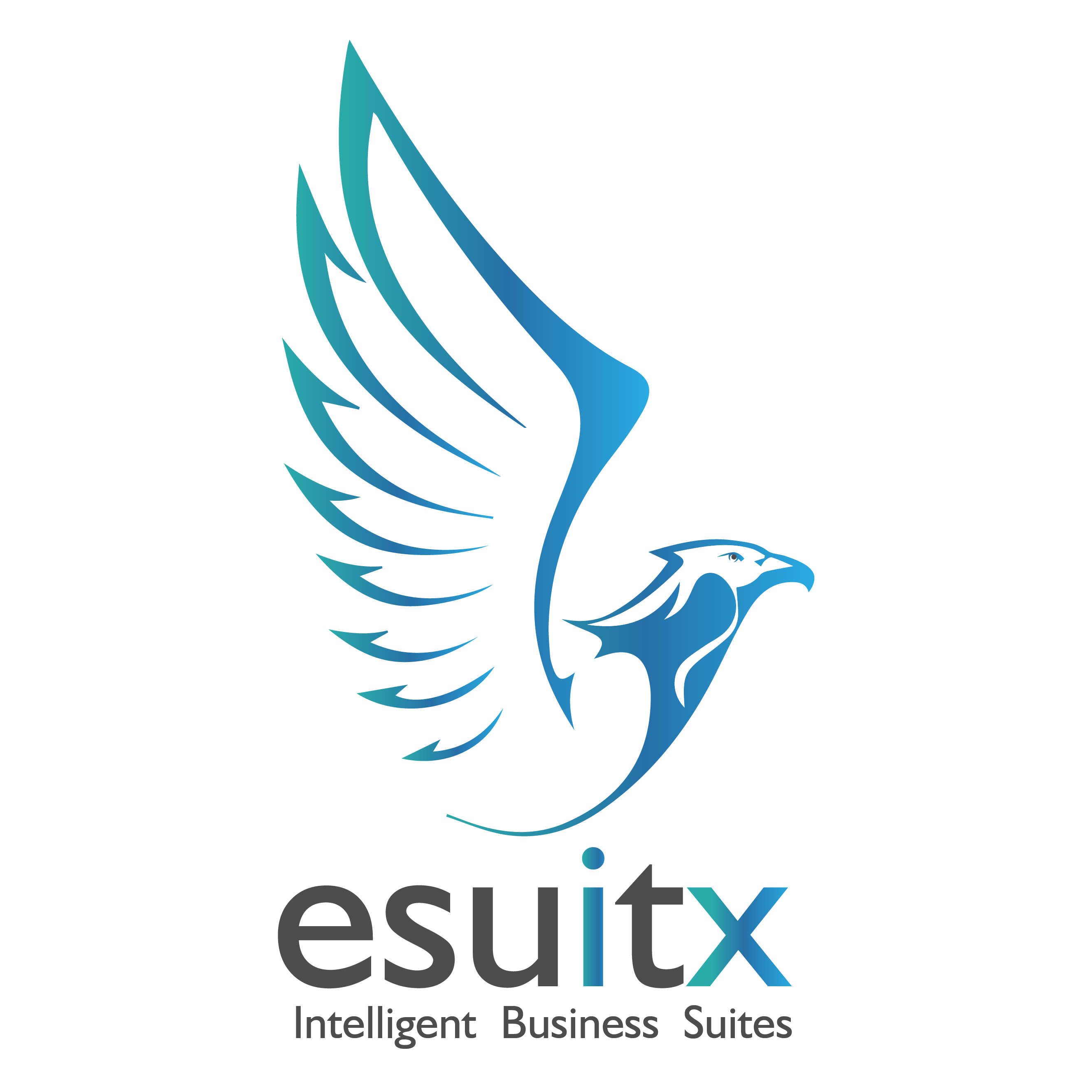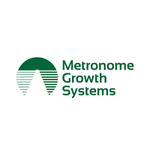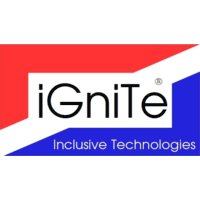Description

Bytepaper

DATAHUB
Comprehensive Overview: Bytepaper vs DATAHUB
As of my last update, I don't have specific, up-to-date information about a product called "Bytepaper, DATAHUB" because it doesn't appear to be widely recognized under those specific names in the broader tech or business industry context known up to October 2023. However, I can offer a general guide on how you might approach understanding software products with similar names or purposes typically found in business and data management sectors.
General Overview Approach:
a) Primary Functions and Target Markets:
-
Bytepaper:
- Primary Functions: If analogized with typical business management software, Bytepaper could function as a CRM (Customer Relationship Management) tool, offering features like customer data management, sales tracking, and communication management.
- Target Markets: Small to medium-sized businesses (SMBs), sales teams, and possibly industries looking for streamlined contact and lead management solutions.
-
DATAHUB:
- Primary Functions: Generally, a product named DATAHUB might function as a data management and integration platform, possibly managing data from multiple sources, data warehousing, or big data analytics.
- Target Markets: Enterprises dealing with large volumes of data, such as finance, healthcare, and e-commerce industries, typically needing comprehensive data integration and analytics solutions.
b) Market Share and User Base:
- Market Share: Determining precise market share requires reliable data from market research firms or company disclosures, which would compare the number of users and revenue against competitors.
- User Base: A product's user base can vary significantly. CRM tools like Bytepaper, if generalizing from well-known products like Salesforce or Zoho CRM, typically serve thousands to millions of users. A data management tool like DATAHUB might be popular among larger enterprises that have broad data management needs, likely with fewer users but larger-scale deployments.
c) Key Differentiating Factors:
-
Functionality:
- Bytepaper might differentiate by offering easy integration with other office tools, a user-friendly interface, or unique features tailored to specific industries.
- DATAHUB might stand out through its ability to handle vast amounts of data, advanced analytics capabilities, or seamless integration with various data sources.
-
Scalability:
- Solutions targeted at SMBs (e.g., Bytepaper generally) must offer scalable features that grow with the business without steep cost increases.
- Enterprise solutions (e.g., DATAHUB generally) focus on scalability in terms of data volume and processing power.
-
Customization and Flexibility:
- A competitive edge might come from the ability to customize workflows and integrations, a likely differentiator if Bytepaper offers industry-specific modules.
- DATAHUB could be distinguished by allowing customizable data pipelines and analytics dashboards.
-
Cost and Implementation:
- Pricing structures can be a major differentiator, with some products focusing on cost-effective solutions for smaller enterprises and others offering premium pricing for comprehensive features.
To get detailed and specific information about "Bytepaper, DATAHUB," you would typically refer to the company’s official resources, customer reviews, industry reports, and market analyses to understand the distinct offerings and position of these products in their respective markets.
Contact Info

Year founded :
2016
Not Available
Not Available
India
http://www.linkedin.com/company/bytepaper

Year founded :
2023
Not Available
Not Available
Netherlands
Not Available
Feature Similarity Breakdown: Bytepaper, DATAHUB
To provide a feature similarity breakdown for Bytepaper and DATAHUB, I will consider common features typically associated with productivity and data management software. As of my training data, specific detailed comparisons might require direct access to product documentation or current websites. However, I can provide a general framework based on typical offerings in this industry.
a) Common Core Features
-
Data Management:
- Both Bytepaper and DATAHUB likely offer core data management features such as storage, retrieval, and analytics capabilities.
-
User Collaboration:
- Collaboration tools such as shared access and team permissions for working on datasets or projects.
-
Reporting and Analytics:
- Standard reporting tools that help users generate insights from the data.
-
Integration Capabilities:
- APIs or built-in connectors to integrate with other tools and services, which is vital for interoperability.
-
Security and Compliance:
- Basic security measures like user authentication, data encryption, and compliance with data protection regulations.
-
Scalability:
- Both platforms are likely designed to scale with the growth of data needs, handling increasing volumes efficiently.
b) User Interface Comparison
-
Design Aesthetics:
- Bytepaper may emphasize a more minimalistic or modern design, while DATAHUB might focus on more technical and data-centric visuals.
-
Ease of Use:
- Both platforms aim for intuitive navigation, but Bytepaper might provide a more streamlined experience for smaller teams or companies focusing on user-friendliness, while DATAHUB might offer more robust options tailored to technical users.
-
Customization:
- The ability to customize dashboard views, reports, or workflows might vary, with one potentially offering more extensive options than the other.
-
Mobile Accessibility:
- They might offer different degrees of mobile-friendliness or dedicated apps to manage data on the go.
c) Unique Features
-
Bytepaper:
- Project and Task Management: If Bytepaper focuses more on productivity, it might include detailed project and task management features that are less emphasized in DATAHUB.
- Sales and CRM Features: Bytepaper could feature integrated sales or customer relationship management tools catering to business needs.
-
DATAHUB:
- Advanced Data Processing: DATAHUB might provide more advanced data processing and analytics tools, focusing on data science and engineering.
- Data Versioning and Lineage: Unique capabilities for tracking data changes and understanding data lineage could be a standout feature.
These insights offer a foundational overview, and a precise comparison would benefit from the latest company communications or user reviews to understand current implementations and user experiences.
Features

Not Available

Not Available
Best Fit Use Cases: Bytepaper, DATAHUB
Bytepaper Use Cases
a) Best Fit for Bytepaper
-
Small to Medium Enterprises (SMEs): Bytepaper is tailored for SMEs looking to streamline their operations without the complexity and costs associated with larger enterprise solutions. It offers a user-friendly interface and essential features that cater to these businesses' particular needs.
-
Service-Oriented Businesses: Companies that operate in service sectors such as consulting, healthcare, education, and IT support can benefit from Bytepaper. It typically offers tools for scheduling, customer management, and invoicing, which are crucial for these industries.
-
Project-Based Organizations: Bytepaper is suitable for businesses that rely heavily on project management, like construction firms, marketing agencies, or software development companies. Its features often include project tracking, task management, and time logging.
-
B2B Companies: Bytepaper can be effective for B2B firms that require client management and relationship tracking. It often incorporates CRM-like capabilities to enhance client interaction and foster long-term business relationships.
DATAHUB Use Cases
b) Preferred Scenarios for DATAHUB
-
Large-scale Enterprises: DATAHUB is often the preferred choice for large corporations with complex data needs. It typically provides extensive data storage capabilities, high-level analytics, and reporting features that large companies require.
-
Data-Intensive Industries: Industries like finance, healthcare, and retail, which rely heavily on data analytics for decision-making, can make excellent use of DATAHUB. It often supports big data handling and advanced analytical tools to process and interpret massive data sets.
-
Research and Development: Organizations engaged in significant R&D activities, including academic institutions or technology firms, may find DATAHUB valuable. It generally provides robust data management and collaboration capabilities essential for research work.
-
Organizations Needing Compliance and Governance: Enterprises that must adhere to strict data compliance and governance standards, such as those in finance or healthcare, might opt for DATAHUB for its secure data management and audit trail features.
d) Industry Verticals and Company Sizes
-
Industry Verticals:
- Bytepaper is more adaptable to industries where customer interaction or service delivery is critical, like hospitality, healthcare, and professional services.
- DATAHUB caters to industries requiring extensive data processing and analytics, such as finance, healthcare, retail, and technology.
-
Company Sizes:
- Bytepaper is ideal for small to mid-sized companies focused on growth and efficiency, needing straightforward solutions to manage operations and customer relationships.
- DATAHUB is suited for large corporations and enterprises that have the resources to handle complex data infrastructure and require extensive analytical capabilities to derive insights from large volumes of data.
In summary, Bytepaper is a great fit for smaller, service-oriented businesses prioritizing simplicity and project organization, while DATAHUB serves larger companies and industries needing advanced data handling and analytical capabilities.
Pricing

Pricing Not Available

Pricing Not Available
Metrics History
Metrics History
Comparing teamSize across companies
Conclusion & Final Verdict: Bytepaper vs DATAHUB
To provide a conclusion and final verdict for Bytepaper and DATAHUB, let's consider various factors such as features, pricing, user experience, scalability, and support.
a) Best Overall Value
After considering all factors, if overall value is measured by a combination of affordability, usability, comprehensive features, and robust customer support, Bytepaper tends to offer the best overall value for small to medium-sized businesses especially focused on efficiency and productivity improvements. For larger organizations or specialized needs in data management or analytics, DATAHUB might be more suitable due to its advanced features and scalability options.
b) Pros and Cons
Bytepaper
Pros:
- Affordable Pricing: Bytepaper is generally more cost-effective, making it suitable for startups and small businesses.
- User-Friendly Interface: It offers an intuitive user experience that facilitates quick onboarding and minimal training.
- Solid Customer Support: Provides reliable customer support which is crucial for small teams.
- Integration Capabilities: Easily integrates with other commonly used business tools which enhances workflow efficiency.
Cons:
- Limited Advanced Features: May not cater to complex data management needs of large enterprises.
- Scalability Constraints: Might present challenges or additional costs as the organization grows or requires more advanced features.
DATAHUB
Pros:
- Advanced Features: Offers extensive data management and analytics tools suitable for larger and more data-centric organizations.
- Scalability: Highly scalable solutions which can grow alongside a business.
- Customizable Solutions: Allows for more tailored solutions to meet the specific needs of an organization.
Cons:
- Higher Cost: Typically comes with a higher price tag, which may not be justifiable for smaller organizations.
- Complexity: Can be less user-friendly and require a learning curve which might necessitate specialized training for personnel.
- Integration Complexity: While offering robust integrations, setting them up might require technical expertise.
c) Recommendations for Users
-
For Small to Medium Businesses: If budget is a primary concern and your business does not require extensive data customization or advanced analytics, Bytepaper is an ideal choice providing excellent value for its cost. Its ease of use and integration capabilities are perfect for improving productivity without heavy investment in training or infrastructure.
-
For Large Enterprises and Data-Focused Teams: DATAHUB is well-suited for businesses with complex data needs or ones that anticipate significant growth in data utilization. If your organization requires advanced analytics, customization capabilities, and scalability, investing in DATAHUB could provide long-term benefits despite a higher initial cost.
-
Hybrid Approach: For businesses on the threshold of expansion or with mixed requirements, considering a hybrid approach where both products are utilized for their respective strengths could be beneficial. Bytepaper could manage the day-to-day operations while DATAHUB could handle complex data analysis and reporting.
Ultimately, the decision should be based on evaluating the specific needs of your organization, including budget constraints, the intended scale of data operations, and available technical support and expertise.
Add to compare
Add similar companies



